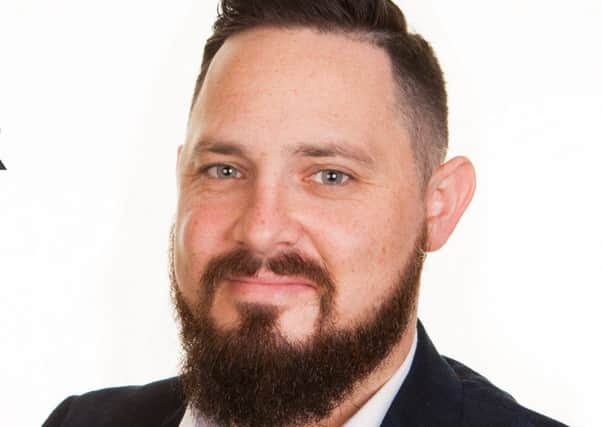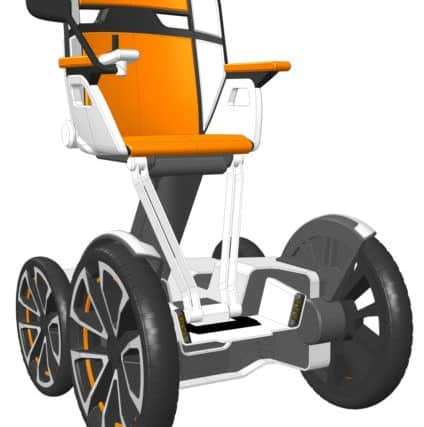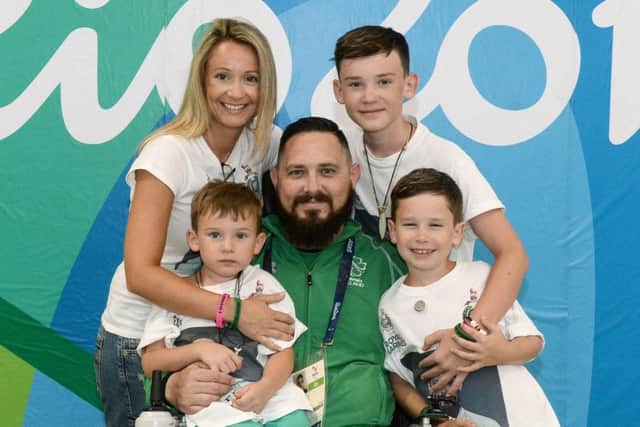Meet the Northern Ireland man behind revolutionary new wheelchair


Philip Eaglesham, a paralympian from Dungannon who was at this year’s Rio Games, invented the elevating wheelchair after his frustration at his loss of independence.
Mr Eaglesham served in Afghanistan as part of the 40 Commando battalion and caught the illness on his last day of a six-month deployment.
Advertisement
Hide AdAdvertisement
Hide AdThe bacterial infection leads to physical debilitation which, in Mr Eaglesham’s case, means he has been so weakened that he cannot lift a coffee cup or play with his children and is confined to a wheelchair.


On return from Afghanistan he customised a Segway by putting a seat on it in order to be at the same height as his wife and friends – but soon found he didn’t have the core strength to hold himself up. That led him to design Victor, the elevating wheelchair that lets users raise themselves up to eye level.
“In October 2010, Helmand province, Afghanistan my life changed forever,” explained Mr Eaglesham.
The physical and emotional devastation wrought by Q Fever led Mr Eaglesham to consider killing himself two years ago so that he would no longer be a burden to his wife and three sons. However, when he began working on the elevated wheelchair he found a new purpose.
Advertisement
Hide AdAdvertisement
Hide AdHe said: “I was given an opportunity not only to change my life path but also the lives of possibly millions of disabled people the world over.


“With the support I’ve had, it became vital to find like-minded people who had the foresight of giving disabled people the ability to live in an able-bodied environment, rather than constantly trying to adapt or structurally change everything.
“To take a disabled person back to a social height, to aid social interaction but also increase independence has been key.”
Victor is still in the development stage and later this month Mr Eaglesham will launch a crowdfunding campaign to raise £600,000 needed to build two prototypes.
The all-terrain chair has been designed by the Medical AMRC team at The University of Sheffield and is also designed to mount kerbs and small steps and can turn on the spot.